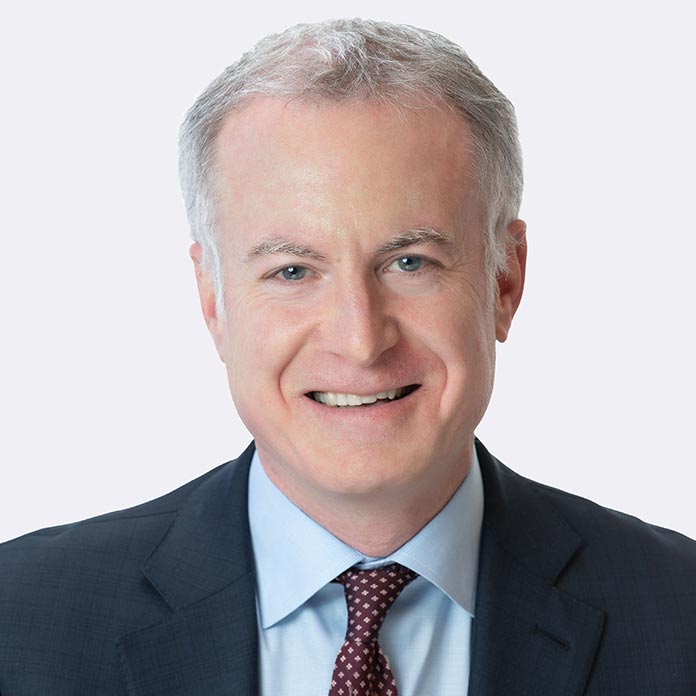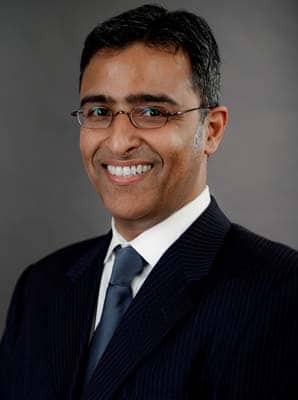FLASH FRIDAY is a weekly content series looking at the past, present and future of capital markets trading and technology. FLASH FRIDAY is sponsored by Instinet, a Nomura company.
Flexibility and resilience are among attributes credited to people of Generation Z.
According to a recent Stanford University report, “The world of Gen Z has been defined by technological changes happening at rapid speeds that also reshaped social experiences. Disruption and impermanence have always been part of the world Gen Z experienced – for them, it’s a norm, not an exception.”
Kobe Ip, Declan Lavin and Caroline Joannes of Instinet are proof of this, as the three Zoomers are making their marks on the job and ready to take on more.
Read on:
Kobe Ip – Analyst, Portfolio Sales Trader (Hong Kong)

Briefly describe your educational background and work experience, including current role/responsibilities.
I graduated from the University of Exeter last year with a bachelor’s degree in Economics. During which, I had also co-founded and led a crypto start-up that aimed to create a stock market for music. I joined Instinet as a Program Sales Trader shortly after my studies. The role has provided me with exposed to the ins and outs of using various algorithms and servicing client needs across the APAC region.
How did you get interested in the world of finance / fintech?
I think the first time I was exposed to anything remotely related to finance or fintech was during middle school where a few of my friends were talking about buying Bitcoin. I finally touched the markets a while later during the GameStop short squeeze, joining the bandwagon and buying a speculative call. While the investment didn’t go as well as I wanted, it made me realize the breadth of the industry, sparking an interest to understanding the market and its nuances.
What is the best aspect of your job?
Every day is different. The nature of my role has made it so that there is always something new to learn. Whether its gaining and refining market microstructure knowledge to how best to execute client orders, I’m always kept on my toes.
Any notable mentors, past or present, that you’d like to recognize?
I’m very fortunate to have the privilege of learning from a supportive and experienced team so early on in my career. That said, one person I am particularly happy to recognize is Stephen Hart, whose careful guidance, mentorship, and patience has been no doubt been paramount to my development thus far.
Is it true Gen Z hates to talk on the phone?
Funnily enough it is definitely something I’ve noticed with myself and fellow peers who are also just starting out. There’s no doubt a jarring element to picking up calls, but after the first couple of times, your confidence builds and any anxiety fades.
Declan Lavin, Associate, International High Touch Trading (New York)

Briefly describe your educational background and work experience, including current role/responsibilities.
I graduated from Fordham University in 2021 with a Bachelors degree in Business Administration with a Concentration in Finance and Information Systems and a Minor in Economics. I have been at Instinet just shy of three years and sit on the International High Touch trading desk. I am responsible for trading client orders both in the US and Internationally, doing ADR conversions, and FX conversions for client’s orders.
What is the best aspect of your job?
No two days are the same. While some aspects remain constant, the changing news and client strategies presents new challenges each day. These challenges require me to adapt quickly and thoughtfully, developing different approaches to handle various situations. I also value the opportunity and trust that I have been given in my time at Instinet since joining out of college.
What do you like to do outside work?
Living in New York City has given me a ton do outside of work. I enjoy going for runs most nights during the week as a good way to clear my head. I love trying new restaurants throughout the city with friends and family. I play some recreational sports through work and outside of work as well with friends to keep me busy.
What is your social media platform of choice, and why?
X (formerly Twitter). I really love sports and think that it is the best way to get quick news and updates for my favorite teams.
Flash forward 20 years: What does your career look like?
I hope to be in the industry long enough to one day run a desk or be able to become a part of management within the equities business. It is a growing and evolving business, especially with the move to AI in the FinTech space. I believe there will be many opportunities to grow and build within the industry but it will depend on the ability to adapt.
Caroline Joannes, Vice President, Index Trader (London)

Briefly describe your educational background and work experience, including current role/responsibilities.
I received my Bachelors degree from Tulane University in 2019 with a double major in Mathematics and Finance. After graduation, I started on the Program Trading desk at Instinet in New York. I initially spent my time helping with execution trading and the Americas index product, and I recently moved to Instinet’s office in London to focus on the Europe & Middle East index product.
How did you get interested in the world of finance / fintech?
I’ve always enjoyed the fast-paced nature of financial markets, and found it was a great industry for someone who enjoys problem solving and the idea that no two days are the same.
What is the best aspect of your job?
I’ve been given the opportunity to take on a lot of responsibility early on, which comes with a lot of autonomy. That said, I get to work closely and collaborate with colleagues across the globe and I’m always eager to learn from their experiences.
Any notable mentors, past or present, that you’d like to recognize?
There are too many to list, as I wouldn’t be where I am today without my colleagues here in London and back in New York; but if I had to recognize one it would be my supervisor during my time in New York, Larry Weiss. He has been instrumental in my success at Instinet and has given me so many opportunities to expand my knowledge. I’m very grateful for everything he has taught me about the business over the past few years.
What is your social media platform of choice, and why?
TikTok. Beyond the endless amount of content that can be consumed, I enjoy the highly personalized and shorter tidbits of content it provides.
See Traders Magazine’s previous Gen Z interviews with Clear Street, Robinhood Markets, T. Rowe Price, Citadel Securities, and DB.













The Rise of Electronic FX Options Trading: An Inevitable Evolution
By Alan Dweck, Chief Operating Officer, SGX FX buy-side solutions
Foreign Exchange (FX) options trading has undergone a remarkable transformation in recent years, moving increasingly towards electronic platforms. This shift, driven by institutional clients such as asset managers and hedge funds, underscores a broader trend towards transparency, efficiency, predictability and competitive pricing in FX markets. But this transition is not just a technological evolution, it’s a fundamental change that promises significant benefits for market participants and highlights the growing importance of integrated FX execution management systems (EMS).
Traditionally, investment banks have offered access to price and trade FX options exclusively through their single-dealer portals, thereby allowing them a large degree of exclusivity when quoting FX options and effectively limiting clients’ ability to shop around for the best possible prices. Understandably, this practice has faced mounting opposition from institutional investors who, for some-time now, have been mandated to ensure best execution for their clients. Furthermore, some LPs, whilst ostensibly supporting multi dealer environments, have been selectively responding to requests based on the originating platform. In this way they encourage clients to trade through single-dealer portals, potentially leading to suboptimal price execution. Such approaches are becoming increasingly untenable in the face of modern demands for transparency and efficiency.
The reality is that the longstanding resistance from investment banks is now being overcome by the sheer force of market demand for fairness and transparency along with technological improvements. Take the commoditised nature of plain vanilla options, for example: a basic call or put option on EUR/USD is ripe for electronic trading. These options are standardised and widely traded, meaning their pricing should naturally be competitive and transparent. The move towards electronic platforms allows clients to access multiple quotes from different providers, ensuring they can select the best available price. This not only enhances market efficiency but also aligns with the fiduciary duty of asset managers to deliver best execution.
This is not to say that all FX option types are moving in a fully automated direction. Exotic options, for example, present a different scenario. More complex and less frequently traded instruments, such as a Bermuda-style lookback straddle option on the EUR/USD, still necessitate the bespoke services that banks provide. The market for these exotic options is not yet suited for full automation due to their intricate nature, complex credit considerations, and the multiplex risk considerations required for bespoke pricing by option providers. Here, the banks’ expertise and personalised service remain valuable, and their control over this segment of the market is less likely to diminish in the short term.
These more complex options aside, the advantages of integrating electronic FX options trading into an FX EMS are manifold. An integrated solution streamlines the trading process, from order management to execution and post-trade reporting. This seamless integration enhances operational efficiency, reduces errors, and provides comprehensive analytics, allowing traders to make more informed decisions. Moreover, it ensures compliance with regulatory requirements, which increasingly mandates best execution and transparency.
Asset managers and hedge funds’ insistence on competitive pricing and efficient execution is reshaping the FX options market. Banks, despite their initial resistance, are now recognising the inevitability of this shift. Those banks that have adapted by embracing electronic platforms and integrating their services into comprehensive EMS solutions are benefitting from increased client trust and business.
Furthermore, electronic trading platforms provide a level playing field where prices are determined by market dynamics rather than the opaque practices of a few dominant players. This democratisation of trading fosters innovation and competition, ultimately benefiting the entire market ecosystem. As more participants engage with electronic platforms, liquidity improves, spreads tighten, volumes increase and the overall cost of trading decreases for all parties.
The shift towards electronic FX options trading marks a significant milestone in the evolution of financial markets. The inexorable demand for best execution and transparency is driving change. Plain vanilla options, with their commoditised nature, are leading the way in this transition, while exotic options still benefit from bespoke banking services.
The integration of electronic FX options trading into wider FX EMS solutions offers unparalleled advantages, heralding a new era of efficiency, transparency, and competitive pricing in the FX options market. The future is clear: electronic trading is not just an option; it is the path forward towards a fairer and more efficient financial marketplace.